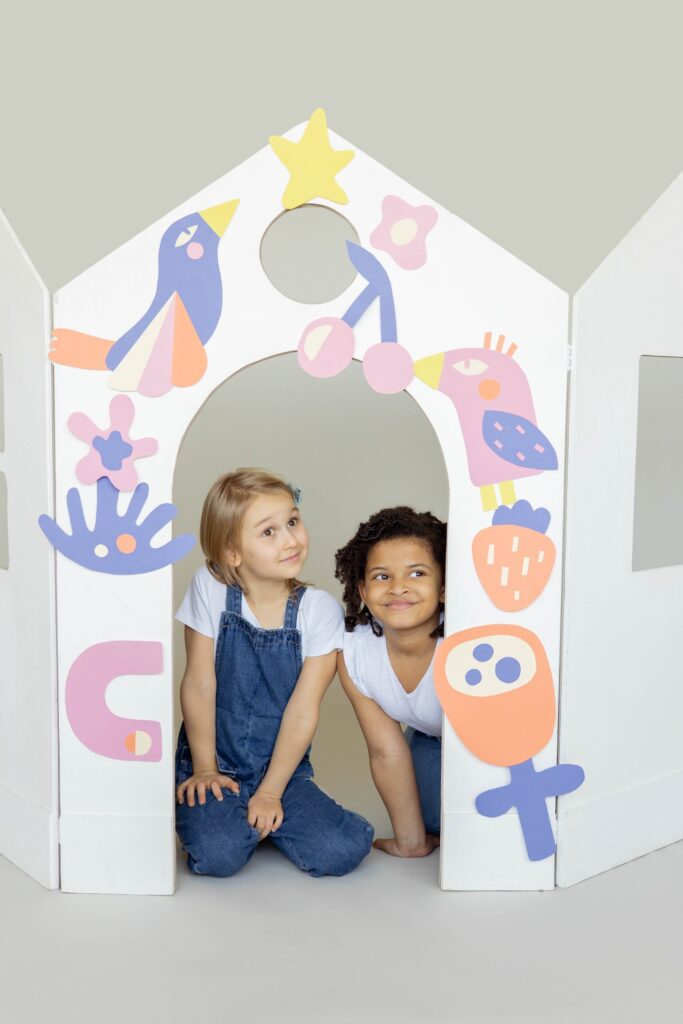In the bustling world of a child, where every day is an adventure waiting to be explored, cultivating a routine might seem like an imposition on their freedom. However, as we delve into the realm of childhood, we begin to understand that routines not only provide structure but also offer a plethora of health benefits. Additionally, the journey of growing up involves forging connections, which can sometimes be daunting. This article aims to explore the significance of a healthy routine for kids and shed light on the importance of accepting oneself and others while navigating the intricate world of relationships.
Healthy Benefits of Having a Routine
A daily routine may seem monotonous, but its impact on a child’s well-being is immeasurable. The sense of predictability and consistency that a routine brings provides children with a comforting environment, reducing anxiety and stress. From a physiological perspective, a well-maintained routine ensures that children receive an adequate amount of sleep, aiding their growth and cognitive development. This consistent sleep pattern also boosts the immune system, contributing to overall health.
Beyond physical well-being, routines nurture emotional stability. When children know what to expect each day, they gain a sense of control, leading to improved self-confidence and reduced behavioral issues. A routine can serve as a foundation for healthy habits, fostering skills such as time management and responsibility, which prove invaluable as they progress through life. Furthermore, routines offer families a chance to bond, as shared activities become cherished moments of togetherness.
Embracing Acceptance: Yourself and Others
In a world that celebrates diversity, teaching kids to embrace themselves and others is paramount. Acceptance, both self and of others, sets the stage for a harmonious society. Children are like sponges, absorbing information from their surroundings, which is why fostering a culture of inclusivity matters more than ever.
Self-acceptance is the cornerstone of a child’s emotional development. Encouraging them to embrace their uniqueness fosters a positive self-image. When kids accept themselves, they become resilient to the pressures of fitting into societal molds, enabling them to channel their energy into personal growth and exploration. Additionally, a strong sense of self-worth acts as a buffer against bullying and peer pressure.
Acceptance of others, regardless of differences, cultivates empathy and compassion. By teaching kids to see the humanity in others, we lay the foundation for a world characterized by unity and respect. As children learn to value diversity, they develop interpersonal skills that are crucial for navigating friendships and future relationships.
Navigating Friendship: The Pressure and the Joy
Childhood friendships are like delicate blooms that require careful nurturing. Making new friends can be both exciting and anxiety-inducing. The fear of rejection or not being accepted can be overwhelming, but it’s important to remember that this feeling is universal. Every child, at some point, experiences the pressure of initiating new relationships.
The key lies in taking that first step. Encourage kids to approach potential friends with an open heart and a genuine smile. Empathy goes a long way; teaching them to listen actively and show interest in others lays the groundwork for lasting connections. Sharing hobbies and interests can be the bridge that brings two young hearts closer together. By acknowledging that even adults feel the same nervousness when making friends, kids can find solace in the fact that they’re not alone in their feelings.
Inclusivity Matters: Nurturing Connections in the LGBTQ+ Community
In our discussion of making friends and embracing acceptance, it’s vital to highlight the experiences of the LGBTQ+ community. LGBTQ+ kids may face unique challenges in building connections due to concerns about acceptance and discrimination. For these children, finding friends who understand their journey can be particularly comforting.
Parents, educators, and peers must create an environment where LGBTQ+ children feel safe expressing themselves. Encouraging open conversations about diversity and identity can foster understanding and empathy among all kids. It’s essential to provide resources and support for LGBTQ+ youth, ensuring they have the tools to form connections that celebrate their authentic selves.
Childhood is a tapestry of experiences woven with routine, friendships, and acceptance. By establishing a healthy routine, children are equipped with the tools to navigate life’s challenges and joys. Embracing themselves and others allows kids to grow into compassionate individuals who appreciate the beauty in diversity. Making friends might seem daunting, but it’s a journey every child embarks upon, and with support, they can overcome the pressures and relish the joys of connection. As we advocate for inclusivity, let’s remember to create spaces where every child, regardless of their identity, can find friends who celebrate and understand them. In this symphony of routine and relationships, kids can truly flourish, embracing both their individuality and the power of human connection.








